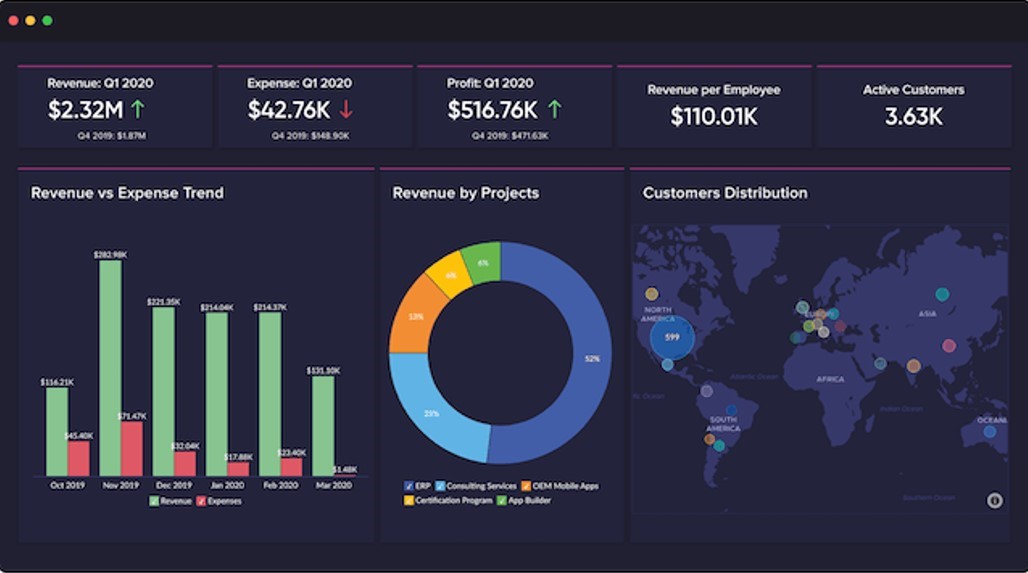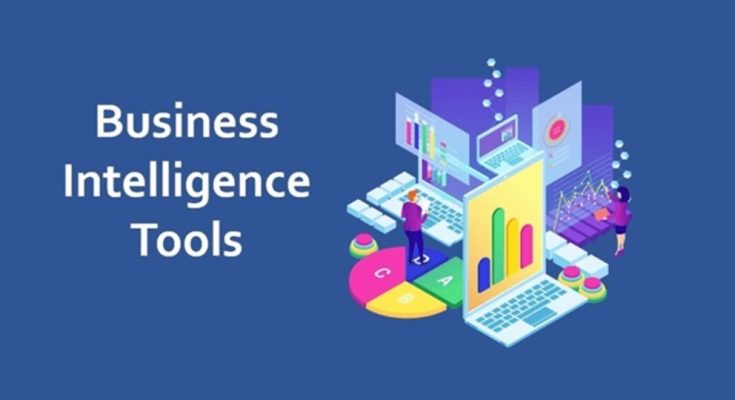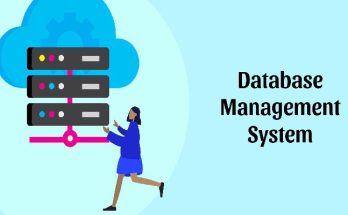Find out Popular Business Intelligence Tools
Are you ready to take your business to the next level? In today’s fast-paced digital world, having access to accurate and timely data is crucial for making informed decisions. That’s where Business Intelligence tools come in. By harnessing the power of BI tools, you can unlock valuable insights hidden within your data, helping you drive growth and stay ahead of the competition. Let’s delve into the world of Business Intelligence and discover some of the most popular business intelligence tools that can supercharge your business operations!

Different Types of Business Intelligence Tools
When it comes to business intelligence tools, there is a wide array of options available to suit various needs and preferences.
One common type is reporting tools, which help in generating and presenting data in a visual format such as charts or graphs for easy analysis. These tools are great for tracking key performance indicators (KPIs) and monitoring trends over time.
Another type is dashboard software that provides a real-time overview of the most important metrics for your business on a single screen. This simplifies decision-making by offering quick insights into the company’s performance at a glance.
Data mining tools are also popular among businesses looking to extract valuable information from large datasets through statistical algorithms and machine learning techniques. These tools can uncover patterns, correlations, and trends that may not be immediately apparent.
Self-service BI tools empower users to access and analyze data without needing assistance from IT professionals. This promotes agility within organizations by allowing employees to make informed decisions based on real-time data without delays or bottlenecks.
Advantages of Using Business Intelligence Tools for Your Business
Implementing business intelligence tools in your organization can provide numerous benefits that can help drive growth and success. One advantage is the ability to make data-driven decisions based on real-time insights, allowing you to stay ahead of market trends and competition.
By analyzing large sets of data efficiently, BI tools enable you to identify patterns, trends, and opportunities that may not be immediately apparent. This comprehensive view allows for better strategic planning and forecasting, leading to improved operational efficiencies.
Moreover, these tools promote collaboration among teams by providing a centralized platform for sharing reports and analyses. This fosters a culture of transparency and accountability within the organization.
Additionally, with customizable dashboards and visualizations, BI tools make complex data easy to understand for all stakeholders. This accessibility empowers employees at all levels to leverage data effectively in their decision-making processes.
Top 5 Popular Business Intelligence Tools
Are you looking to elevate your business with powerful data analytics and insights? Look no further than these top 5 popular Business Intelligence tools that are revolutionizing the way companies make informed decisions.
First up, Tableau – known for its user-friendly interface and robust visualization capabilities, Tableau allows users to create interactive dashboards and reports effortlessly.
Next on the list is Power BI by Microsoft. With seamless integration with other Microsoft products, Power BI offers advanced analytics features that enable businesses to uncover valuable insights from their data.
Another contender is QlikView, which stands out for its associative model that helps users explore data relationships dynamically, leading to a deeper understanding of their datasets.
SAP BusinessObjects is also a frontrunner in the BI space, offering a comprehensive suite of tools for reporting, dashboarding, and ad-hoc analysis tailored to meet enterprise-level needs.
Last but not least is Domo – a cloud-based platform that provides real-time access to business data across various sources, empowering organizations with actionable insights on-the-go.
Comparison and Features of Each Tool
When it comes to choosing the right Business Intelligence tool for your business, it’s essential to compare the features of each option available in the market. Let’s take a closer look at some of the popular BI tools and what sets them apart.
Tool A offers robust data visualization capabilities, making it easy to create interactive dashboards and reports. On the other hand, Tool B focuses on advanced analytics, allowing users to uncover insights through predictive modeling and machine learning algorithms.
Tool C stands out for its user-friendly interface and intuitive design, making it ideal for businesses looking for an easy-to-use solution. Meanwhile, Tool D excels in data integration capabilities, enabling seamless connectivity with various data sources.
Tool E shines in scalability and performance, catering to large enterprises with massive datasets that require real-time processing. Each tool brings something unique to the table, so it’s important to evaluate your business needs carefully before making a decision.
How to Choose the Right BI Tool for Your Business
Choosing the right Business Intelligence (BI) tool for your business is a crucial decision that can greatly impact your operations. To start, consider the specific needs and goals of your organization. Do you require real-time analytics, data visualization, or predictive modeling? Understanding your requirements will help narrow down the options.
Next, evaluate the scalability and flexibility of each BI tool. As your business grows, you’ll need a tool that can adapt to increasing data volumes and changing needs. Look for a solution that offers customization options to tailor it to your unique business processes.
Additionally, take into account the user-friendliness of the BI tool. You want a platform that is intuitive and easy for employees across departments to navigate and utilize effectively. Conducting demos or trials can give you a hands-on feel for how each tool performs in action.
Consider factors like cost, integration capabilities with existing systems, and vendor support services before making a final decision on which BI tool aligns best with your business objectives.
Conclusion
In the fast-paced world of business, having the right tools to gather, analyze, and visualize data is crucial for making informed decisions. Business Intelligence tools provide valuable insights that can help businesses stay competitive and adapt to changing market trends.
By utilizing popular Business Intelligence tools such as Tableau, Power BI, QlikView, Domo, and Looker, companies can streamline their operations, improve efficiency, and drive growth. Each tool offers unique features and capabilities tailored to different business needs.
When selecting a BI tool for your organization, consider factors such as ease of use, scalability, integration capabilities with existing systems, cost-effectiveness, and customer support. By choosing the right BI tool that aligns with your business objectives and requirements,



